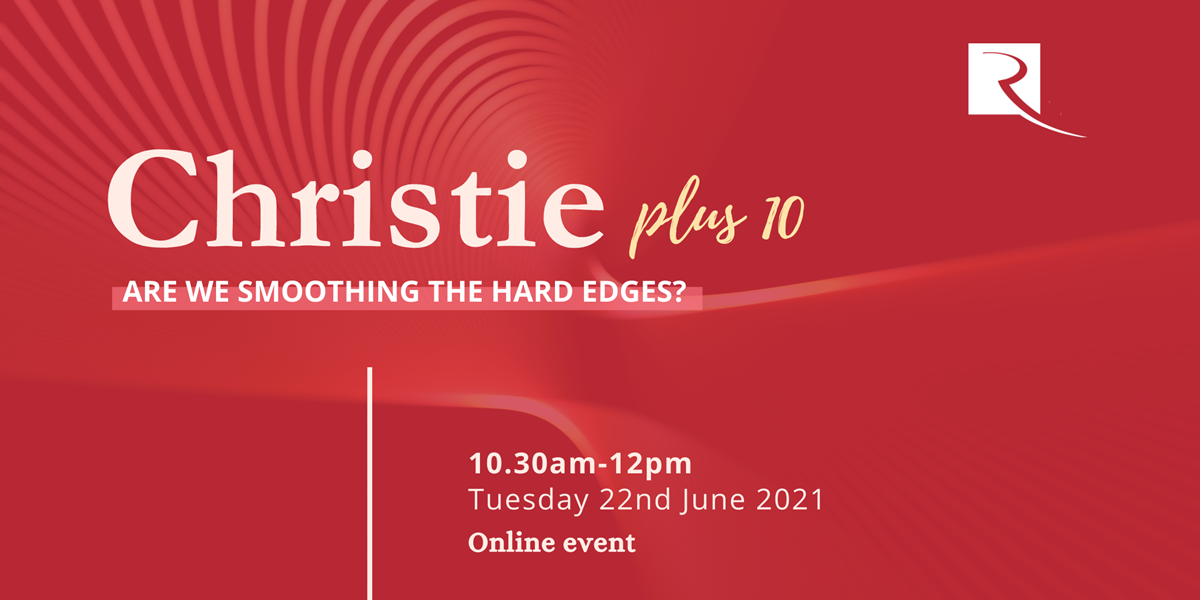This month marks ten years since Campbell Christie delivered his Commission’s report into the future delivery of public services in Scotland. Its strategic ambition was bold, setting the tone for how we think about prevention and participation in public services to address the pressures of funding and demography. More importantly - at a human level - the Commission’s work recognised the heartache caused when families are pulled into complex services involving multiple agencies, and the toll this takes on people’s wellbeing, as well as the public purse.
However, a decade on, and long before the pandemic, there was a consensus brewing that Scotland was being blown off course from the journey Christie had started. As a result, we have failed to avoid repeat crises and only made marginal gains towards his vision.
The Robertson Trust now wants to take stock of where we are and Scotland’s collective progress to date. The Hard Edges Scotland report we led with Lankelly Chase in 2019 found that 190,000 adults still had at least one experience of homelessness, offending or addiction in a typical year. Are we managing to smooth these hard edges? That’s the central question we will address in a panel discussion with some of Scotland’s leading practitioners on Tuesday 21 June.
One of the people behind that number is Davie. A glimpse of his experience follows below. Like the rest of us, he was told to stay at home during lockdown. But what happens if “home” is not a safe place, or if it simply doesn’t exist?
Since the first lockdown 15 months ago, we have seen a remarkable effort to bring people in from sleeping on the streets, offering temporary hotel accommodation with keyworker support. Simon Community Scotland and its partners have helped many to move onto their own tenancy, often for the first time. It may be a cliché – but this is perhaps the most visible opportunity grasped in a crisis, and one that speaks volumes about what is possible when agencies work together to find solutions – a nod to Christie’s vision.
However, while the Everyone Home alliance, and multiple other excellent examples of responsiveness and agility, is working to leave homelessness and rough sleeping behind us for good, sadly the job is far from done.
The question remains: in a post-pandemic Scotland, are we sharpening or smoothing the hard edges faced by too many in our society?
We need to talk about Davie*
The streets are almost deserted on a wet Saturday afternoon. Davie, a man in his early 30s, sits on the wet pavement with a cup in front of him. A woman passes then turns back to give him money for food. Davie flinches – his hearing is damaged on one side and he is fearful for his safety. He explains he was assaulted and had his phone, money and driver’s licence stolen. Davie has a prominent scar down his head from major surgery before Christmas. He slept on a friend’s sofa when he got out of hospital but couldn’t stay there longer. He isn’t sure how many days he has been on the street and although he is exhausted, he sips from a can of Red Bull to keep him awake in case he is attacked again. He hates asking for money but his only food in the last three nights was from a bin next to an Indian takeaway. He becomes upset – his mum died two weeks earlier.
A call is made to the council’s emergency homeless advice service. They speak to Davie. His confusion is taken as a sign of being “under the influence.” Davie says he has been offered drugs but refused. His communication difficulty seems related to his surgery. Is Davie taking the medication he obviously needs? Is he registered with a GP? The telephone advice is to take him to a police station where a call can be made to the same service to see what can be done. The woman accompanies him. The police officer recognises him, asks for his name and date of birth and says they will take it from there.
This short encounter raises more questions than provides answers. During COVID, there are still people dropping out of the referral pathways that should be in place. With walk-in services closed, Davie didn’t know how to get help with housing or social security. He didn’t want to go to A&E because of COVID. He was lost in every sense. He has experienced multiple traumas.
At the same time, his potential is clear. He had a job for years as a forklift driver. His condition means he can’t return to it – but he could re-train with support. In the recent past, he loved to keep fit. He needs a rehabilitation plan. Above all, he needs to find a permanent safe place to live, away from the threat of further violence.
We know from the Hard Edges research that severe and multiple disadvantage via homelessness is most likely to affect single men under 40 with a long-term sickness or disability. Navigating multiple services was tough enough in normal times. A ‘no wrong door’ approach which builds trust and consistent contact with people like Davie is needed now more than ever. The Prevention Commission convened by Homeless Network Scotland is a compelling example of how to co-design policy and practice solutions alongside people who have first-hand experience of the problem.
Now is the time to accelerate this way of working, which we aim to focus on in our upcoming webinar. At the heart of The Robertson Trust’s new strategy is a commitment to collaborative approaches which advance rights. We will support action to address poverty and trauma through financial security, emotional wellbeing and education/work pathways. Above all, we want to understand what it will take for people like Davie to be able to count on our public services to deal with the essentials - and enable the third sector to replace hard edges with better lives.
*Davie’s real name has not been used.
TRT Event - Christie Plus Ten: Are we smoothing the hard edges?
Ten years on from the Christie Commission in a period of profound uncertainty, where do we find ourselves? How far have the recommendations set out by the Commission been reflected in how we shape and deliver our key public services? Has this improved the way people, and particularly those facing multiple challenges, are supported by our public services? Are the hard edges of severe and multiple deprivation that shape so many lives getting smoother?
To explore these questions, The Robertson Trust is delighted to host an online conversation on the Christie Commission ten years on. The event, which is free and open to all, will take place on Zoom on Tuesday 22nd June 2021 at 10.30am-12pm.
Joining the conversation will be some of Scotland’s most experienced industry leaders and practitioners including:
- Julian Corner, chief executive of Lankelly Chase
- James Docherty, Violence Reduction Unit and campaigner on ACEs
- Kezia Dugdale, director of the John Smith Centre
- Mary Glasgow, chief executive of Children 1st
- Carolyn Sawers, acting chief executive of the Corra Foundation
- Mike Burns, CEO of Aberdeen Cyrenians
The session will include input from panel members and the opportunity to pose questions. The discussion will also be grounded in findings from the Hard Edges Scotland report, commissioned by TRT and Lankelly Chase, which looked at public services through the lens of severe and multiple disadvantage. Published in 2019, we found that 191,000 adults in Scotland had experienced at least one of homelessness, substance dependency or offending in a typical recent year.
The event will be chaired by the chief executive of The Robertson Trust, Jim McCormick.


